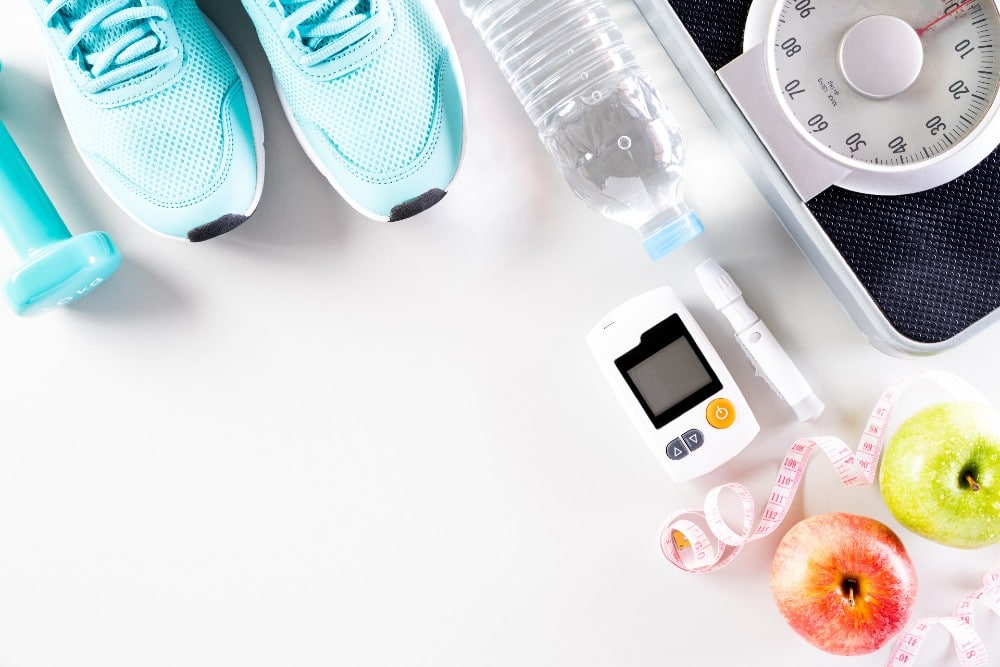Tips for Managing Diabetes as the Weather Heats Up
Although the constant, scorching heat of July and August is still a ways off, there’s a definite warming trend here in Waco. April is usually the month when the mercury begins approaching the 90-degree mark, and that will only get more common as we race toward summer!
Now, most of us do love the summer weather, but all that heat and humidity can pose additional challenges for those trying to protect their diabetic feet. Not only can changing weather patterns throw off your routine, but it can also affect your physiology (and even your medications and equipment) in ways that increase the danger.
Here are a few tips to help keep you and your feet safe this spring and summer.
Test More Often
Hot temperatures can mean blood sugar levels may fluctuate more wildly. As a result, it’s important that you test yourself regularly—even more often than you ordinary would. This is especially true if you’re going to be doing physically demanding tasks out in the sweltering heat.
Make sure you test before, during, and after activity, and adjust your dosage as needed. You may want to check in with your doctor this spring and talk about appropriate dosage adjustments for summer exercise.
Keep up the more frequent testing for several hours even after you’ve come inside and cooled down, as the effects on your sugar can last quite a while after activity.

Drink a Lot of Water (and Carry Some Snacks, Too)
This is good advice for everyone on hot days, but if you have diabetes, staying hydrated is especially important.
Dehydration is strongly correlated with increased blood sugar levels. Further complicating the issue, dehydration often causes you to urinate more frequently (which further depletes your water supply) and also reduces circulation (which makes it harder for your body to absorb insulin).
As you can see, this can cause blood sugar levels to spiral quickly out of control!
If you’re going to be out for a while, make sure you bring along a couple of water bottles and/or non-caffeinated, electrolyte-replenishing sports drinks and refill whenever you can to ensure you don’t run out at a critical time.
Also, avoid caffeine and alcohol, as these can actually increase your risk of dehydration.
Finally, while dehydration is linked with high blood sugar, physical exertion can also decrease your body’s demand for insulin and actually lower your blood sugar. So, make sure you pack some snacks and/or glucose tabs with you just in case.
Protect Your Insulin and Equipment
Did you know that extreme heat can actually cause your insulin to degrade? Most varieties of the hormone in common use can start to break down rapidly once they reach a temperature above 93 to 95 degrees Fahrenheit.
Likewise, test strips, monitoring devices, and even insulin pumps can also suffer operational failures and reduced accuracy under extreme weather conditions.
You should never store your insulin or testing equipment in direct sunlight, a hot vehicle, or any other location that can get extremely hot.
If you’re going to be outside and away from your vehicle or home for an extended period of time, take along a cooler for your supplies (but don’t put insulin directly on ice either, as extreme cold temperatures are also problematic). You can also get a small cooler that charges using the 12V adapter on your vehicle.
If you’re concerned that your insulin pump may fail due to high temperatures, it might also be wiser to take some long-acting insulin instead. Be sure to discuss this with your doctor.
Protect Your Feet
We understand that it’s hot in Texas in spring and summer, and nobody wants to wear closed-toed shoes unless they absolutely have to. You’d rather grab your flip flops, or even go barefoot.
However, unprotected feet are a big no-no for those with diabetes, especially if you suffer from the symptoms of peripheral neuropathy or have any history of foot or leg ulcers.
Your bare feet are much more likely to suffer cuts and scrapes from rocks and sharp objects on the ground. You’re also far more likely to pick up an unwanted fungal infection from a pool deck or locker room floor.
And because diabetes makes you less likely to feel injuries, heal wounds, and fight off infections, those “little accidents” can quickly develop into something more dangerous.

We’d generally recommend a good pair of diabetic shoes for most outdoor summer activities (walking, hiking, sports, etc.). Flip flops are usually fine for the pool (but check with your doctor), while a good pair of water shoes might be better for the beach.
The main point, though, is that you should never go barefoot. The risk is just too high, and it’s always much better to prevent an injury than having to deal with it later!
Whenever possible, choose breathable fabrics for socks and shoes to avoid them becoming a breeding ground for viruses and bacteria—but always make sure that they are safe for your feet, too. A poor fit, interior seams, and other issues could actually cause problems, rather than prevent them.
The team at Waco Foot & Ankle would be happy to help you select a pair of shoes, as well as custom orthotics if necessary, to protect your feet this summer (and all year long).
Be Smart About When to Exercise
Again, this is good advice for everybody, but especially good advice if you have diabetes.
While regular exercise is of course critically important for staying healthy and managing your diabetes, try to avoid going outside or over-exerting yourself during the hottest and most humid time of the day.
When the heat index starts getting crazy high, stay inside where it’s cool. Try to run your errands, go for a jog, or otherwise get your exercise in during the early morning or later in the evening, when temperatures are more moderate.
Enjoy a Healthy, Active Summer!
Although the increased heat comes with risk for those with diabetes, a few smart precautions can keep you both active and safe.
And if it’s been more than a year since your last diabetic foot care checkup, make sure you add an appointment with Waco Foot & Ankle to your spring checklist. In addition to helping you with the perfect pair of shoes (and if necessary, orthotics), we’ll test the health of your nerves and circulation and fix up any existing foot issues so you can go out with confidence!
To schedule your appointment with us today, please call (254) 776-6995.
